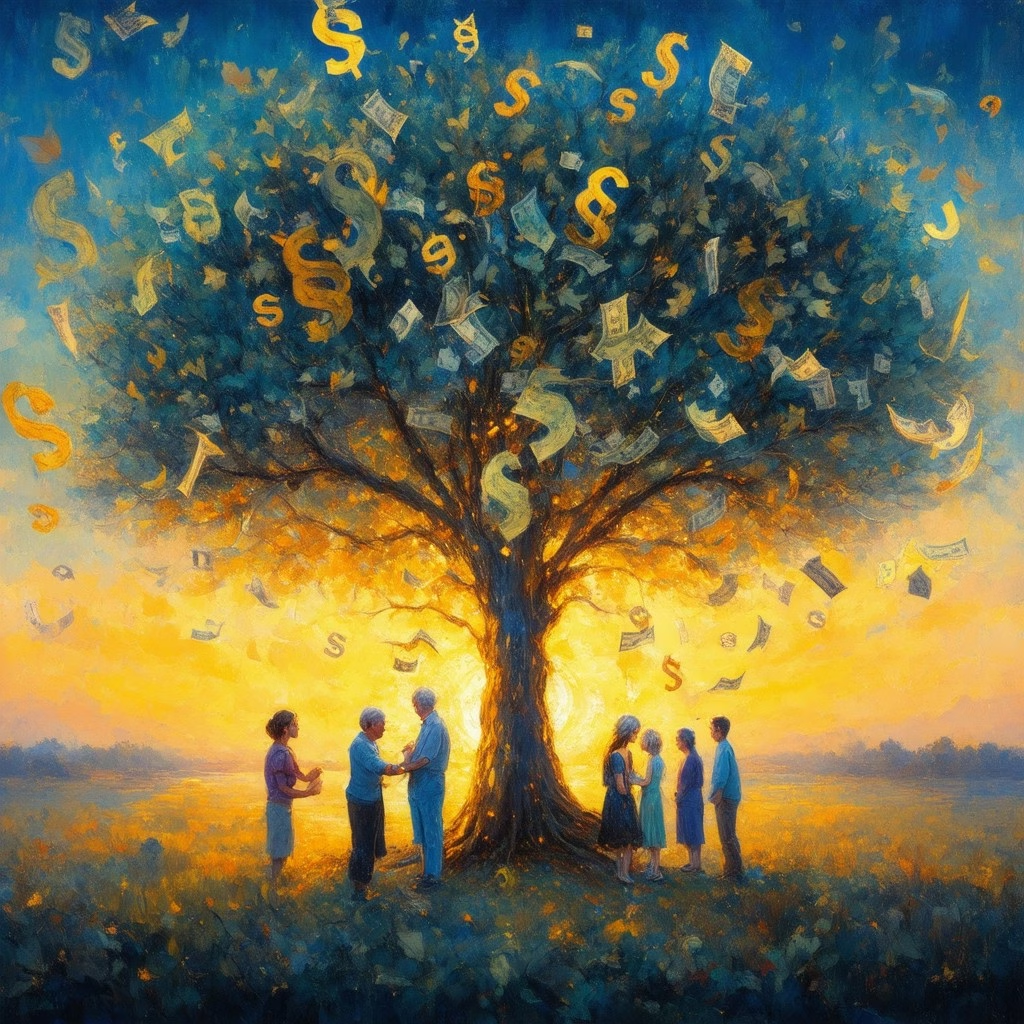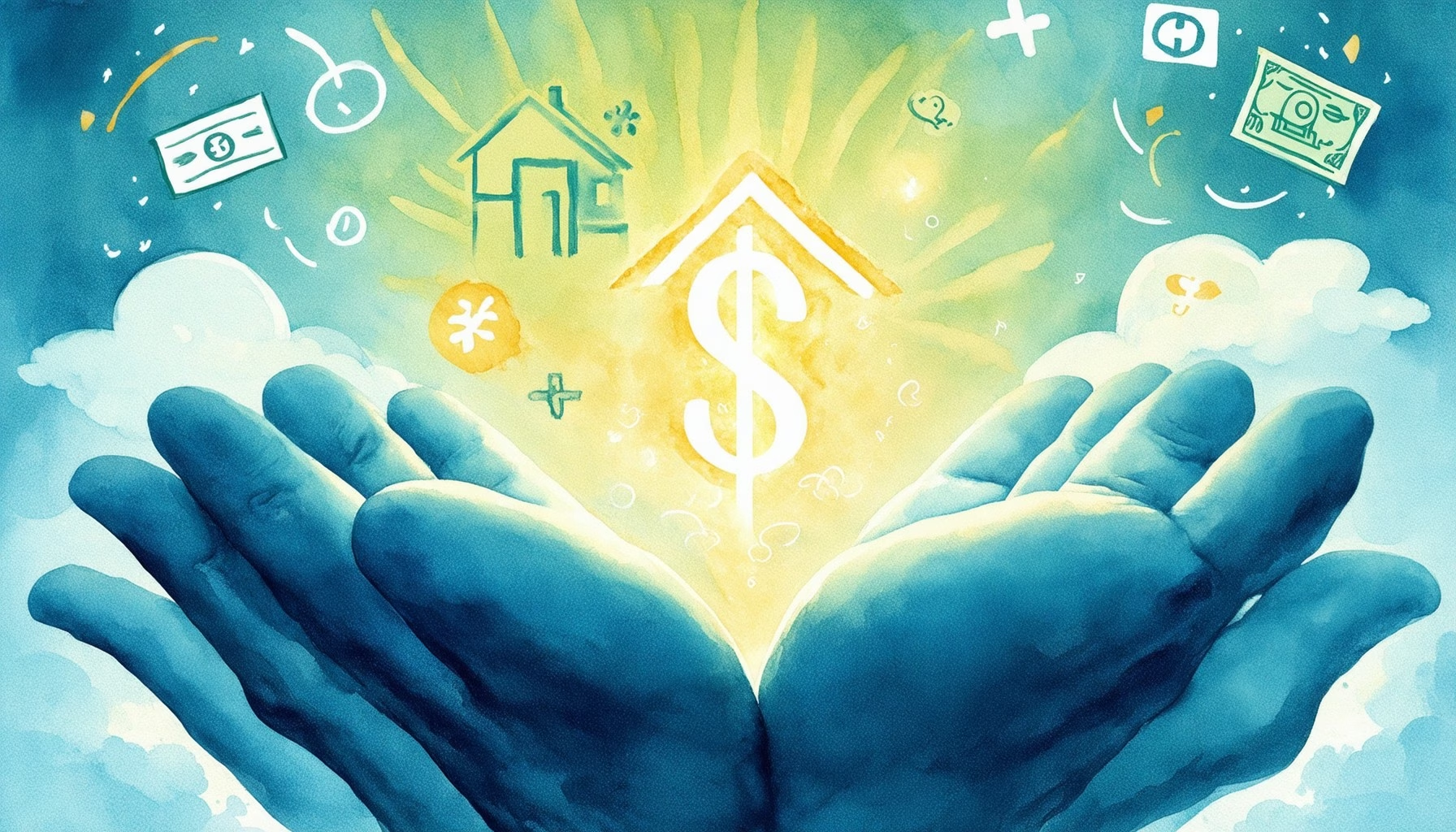Key Takeaways
- Explore free grants to help pay bills from government agencies, nonprofits, and community organizations for financial relief.
- Utilize programs like LIHEAP for utility assistance and SNAP for food support to alleviate immediate financial burdens.
- Research nonprofit organizations such as the Salvation Army for additional assistance with rent and essential expenses.
- Consider crowdfunding platforms like GoFundMe for urgent financial needs and community support.
- Follow a systematic approach to apply for grants, including identifying needs and gathering documentation for successful applications.
- Stay informed about local government resources and programs that can provide emergency financial assistance.
In today’s challenging economic landscape, many individuals find themselves searching for free grants to help pay bills. This comprehensive guide aims to illuminate the various options available for financial relief, including government programs and grants specifically designed to assist those in need. We will explore how to get free grants to pay bills, the types of free grant money for bills and personal use, and the steps to request assistance effectively. Additionally, we will address pressing questions such as, “Is there such a thing as a hardship grant?” and “How can I get help paying my bills?” Whether you are seeking immediate assistance or long-term solutions, this article will provide valuable insights and resources to help you navigate your financial challenges. Join us as we delve into the world of grants and discover how you can secure the support you need to alleviate your financial burdens.
Understanding Free Grants to Help Pay Bills
Free grants to help pay bills are financial resources provided by government agencies, nonprofits, and other organizations to assist individuals facing financial hardships. These grants do not require repayment, making them an invaluable option for those in need. Understanding the types of grants available and how to access them can significantly alleviate financial stress, especially when you find yourself asking, “I need help paying my bills.”
Types of Free Grant Money for Bills and Personal Use
There are various types of free grant money for bills and personal use, each designed to address specific needs. Here are some key categories:
- Federal and State Assistance Programs: While the government does not provide “free money” directly to individuals, various federal and state programs offer grants and assistance for specific needs. For example, the Low Income Home Energy Assistance Program (LIHEAP) helps with utility bills, and the Supplemental Nutrition Assistance Program (SNAP) provides food assistance. Visit Benefits.gov to explore available programs tailored to your situation.
- Nonprofit Organizations: Numerous nonprofit organizations offer grants and assistance for individuals facing financial hardships. Organizations like the Salvation Army and United Way provide resources for utility bills, rent, and other essential expenses. Research local charities that may have funds available for those in need.
- Community Action Agencies: These agencies often administer federal and state assistance programs at the local level. They can help you access resources for paying bills, including emergency financial assistance. Find your local Community Action Agency through the Community Action Partnership website.
- Crowdfunding Platforms: If you are in urgent need of financial help, consider using crowdfunding platforms like GoFundMe. Many individuals have successfully raised funds to cover bills and unexpected expenses through community support.
- Educational Grants and Loans: If your financial needs are related to education, federal student loans and grants, such as the Pell Grant, can provide financial support. Visit the Federal Student Aid website for more information on eligibility and application processes.
- Local Government Resources: Check with your local government for any available assistance programs. Many municipalities have funds set aside to help residents with utility bills, rent, and other essential expenses.
For comprehensive information and resources, visit USA.gov‘s benefits page, which provides a detailed overview of available assistance programs. Always ensure to verify the legitimacy of any organization or program before applying for assistance.

Understanding Free Grants to Help Pay Bills
Free grants to help pay bills are financial resources provided by government agencies, non-profit organizations, and other entities to assist individuals facing financial hardships. These grants do not require repayment, making them an attractive option for those in need of immediate financial relief. Understanding the types of grants available and the application process can empower you to secure the funding necessary to manage your bills effectively.
Many people often wonder, how can I get help paying bills? The answer lies in exploring various grant options and government programs designed to assist individuals in financial distress. By leveraging these resources, you can find the support needed to alleviate your financial burdens.
Types of Free Grant Money for Bills and Personal Use
There are several types of free grant money available for bills and personal use. These grants can cover a wide range of expenses, including utility bills, medical costs, and other essential needs. Here are some key categories:
- Utility Assistance Grants: Programs like the Low-Income Home Energy Assistance Program (LIHEAP) provide funding to help with electric bills and other utility costs. These grants are crucial for individuals who need help paying their power bill.
- Medical Bill Assistance Grants: Various organizations offer grants specifically for medical expenses. These grants can help cover costs related to healthcare, including surgeries and ongoing medical treatments. For more information, check out help with medical bills.
- General Financial Assistance Grants: Many local and state programs provide general financial assistance to help individuals cover essential bills. These grants can be used for rent, food, and other necessary expenses.
- Hardship Grants for Individuals: These grants are specifically designed for those experiencing significant financial difficulties. They can provide immediate relief for individuals who need help paying bills due to unforeseen circumstances.
By understanding the different types of free grant money for bills and personal use, you can better navigate the options available to you. For further assistance, consider exploring local government grants or visiting Grants.gov for more information on available funding opportunities.
Understanding Free Grants to Help Pay Bills
Free grants to help pay bills are essential financial resources designed to assist individuals and families facing economic hardships. These grants do not require repayment, making them an attractive option for those who need immediate financial relief. Understanding how to access free grant money for bills and personal use can empower you to manage your expenses more effectively.
Many people find themselves in situations where they need help paying their bills, whether due to unexpected medical expenses, job loss, or other financial strains. Free government money is available through various programs aimed at providing assistance for essential costs, including utilities, rent, and medical bills. By exploring these options, you can find the support necessary to alleviate your financial burdens.
Types of Free Grant Money for Bills and Personal Use
There are several types of free grant money available to help with bills and personal expenses. Understanding these options can help you identify the best resources for your situation:
- Utility Assistance Grants: Programs that offer help paying my power bill or help with electric bill costs are available through local and state agencies. These grants can cover a portion of your utility bills, ensuring you maintain essential services.
- Medical Bill Assistance: If you are struggling with medical expenses, there are grants specifically designed to help with medical bills. Government programs to help pay medical bills can provide financial relief for those facing high healthcare costs.
- Housing Grants: Many organizations offer grants to help pay rent or mortgage payments, helping individuals avoid eviction or foreclosure during tough times.
- Emergency Financial Assistance: Various non-profit organizations and government programs provide emergency funds to help individuals in crisis situations, ensuring they can cover essential living expenses.
By exploring these types of grants, you can find the necessary funding to help pay bills and regain financial stability. For more information on available assistance programs, consider visiting financial assistance options or help with medical bills.
Grants That Help Pay Bills and Debt Relief Options
When facing financial challenges, many individuals wonder about the availability of free grants to help pay bills. While grants can provide significant assistance, it’s essential to understand their limitations, especially regarding personal debt relief. Grants are typically designated for specific purposes, such as education or community development, rather than for paying off personal debts. However, there are various options available for those seeking help with bills and financial relief.
Understanding Grants
Grants are funds provided by government entities, foundations, or organizations that do not require repayment. They are often aimed at supporting projects or initiatives that benefit the community or specific groups. For individuals in need, understanding the types of grants available can be crucial in navigating financial hardships.
Alternatives to Grants
- Nonprofit Organizations: Some nonprofits offer financial assistance programs that may help with specific debts or provide financial counseling. Organizations like the National Foundation for Credit Counseling (NFCC) can guide you through debt management options.
- Government Assistance Programs: Depending on your situation, you may qualify for government assistance programs that can help with living expenses, which may indirectly alleviate some financial burdens. Programs like Temporary Assistance for Needy Families (TANF) or Supplemental Nutrition Assistance Program (SNAP) can provide support.
- Debt Relief Options: Consider exploring debt consolidation, negotiation with creditors, or bankruptcy as potential solutions. Each option has its implications and should be evaluated carefully.
- Resources for Financial Help: Platforms like Gov Guider can help you navigate various government assistance programs that may be available based on your financial situation.
While direct grants for paying off personal debt are not available, exploring alternative resources and assistance programs can provide the necessary support to manage financial hardship. Always consult with a financial advisor or a credit counselor to understand the best options for your specific circumstances.
Free Government Grants to Pay Off Debt
Many individuals seeking free grant money for bills and personal use may also wonder if there are grants specifically designed to pay off debt. Unfortunately, grants for personal debt relief are generally not available. However, there are government programs and resources that can assist with living expenses, which can help alleviate some financial pressure.
For those in need of immediate assistance, exploring options such as local government grants or Grants.gov can provide valuable information on available funding opportunities. Additionally, programs that offer help paying my power bill or help with electric bill can be beneficial for managing monthly expenses.
In summary, while grants specifically for paying off personal debt are not available, there are numerous resources and assistance programs that can help individuals manage their financial situations. By exploring these options, you can find the support needed to navigate through challenging times.

How do I request a grant money?
Steps on How to Apply for a Grant to Pay Bills
Applying for free grants to help pay bills can be a straightforward process if you follow these essential steps:
- Identify Your Needs: Determine the specific bills you need assistance with, such as medical bills, utility bills, or housing costs. This clarity will help you target the right grants.
- Research Available Grants: Utilize resources like Grants.gov and Benefits.gov to find free grant money for bills and personal use. Look for programs that cater to your specific needs.
- Gather Required Documentation: Prepare necessary documents, including proof of income, bills, and any other information required by the grant application.
- Complete the Application: Fill out the grant application carefully, ensuring all information is accurate and complete. Pay attention to deadlines and submission guidelines.
- Follow Up: After submitting your application, follow up with the grant provider to check on the status of your application and to ensure all required documents were received.
Tips for Requesting Free Money from the Government
When seeking help paying bills, consider these tips to enhance your chances of receiving free money from the government:
- Be Honest and Transparent: Provide truthful information about your financial situation. Misrepresentation can lead to denial of your application.
- Apply Early: Many grants have limited funding, so applying as soon as possible increases your chances of receiving assistance.
- Utilize Local Resources: Check with local community organizations and social services for additional support and guidance on available grants and assistance programs.
- Stay Organized: Keep track of all applications and correspondence related to your grant requests. This organization can help you manage multiple applications effectively.
- Seek Help if Needed: If you find the application process overwhelming, consider reaching out to local nonprofits or legal aid organizations that can assist you in navigating the process.
How do I request a grant money?
Steps on How to Apply for a Grant to Pay Bills
Requesting free grants to help pay bills can be a straightforward process if you follow the right steps. Here’s how to get started:
- Identify Suitable Grant Opportunities: Research and compile a list of grants that align with your needs. Utilize resources such as Grants.gov, Benefits.gov, and local government websites to find relevant funding sources.
- Understand Eligibility Requirements: Review the eligibility criteria for each grant. This may include specific qualifications related to your financial situation or geographic location. Contact grant administrators directly to clarify any uncertainties.
- Develop a Comprehensive Grant Proposal: Craft a detailed proposal that includes an executive summary, a clear statement of need, a project description, and a budget outlining how funds will be allocated.
- Follow Application Guidelines Precisely: Adhere strictly to the grantor’s application instructions, including formatting and submission deadlines. Non-compliance can lead to disqualification.
- Maintain Communication with Grantors: After submission, keep in touch with the grantor for updates on your application status. This can also provide an opportunity to clarify any questions they may have regarding your proposal.
Tips for Requesting Free Money from the Government
When seeking free money from the government to help with bills, consider these tips:
- Be Thorough: Ensure your application is complete and all required documents are submitted. Incomplete applications can delay the process.
- Be Honest: Provide accurate information about your financial situation. Misrepresentation can lead to denial of your application.
- Follow Up: After submitting your application, follow up with the grantor to check on the status and address any potential issues.
- Explore Multiple Options: Don’t limit yourself to one grant. Look into various grants that help pay bills and apply to multiple programs to increase your chances of receiving assistance.
Need help paying bills ASAP
If you find yourself in a situation where you need help paying bills ASAP, there are several immediate assistance programs available that can provide support. These programs are designed to help individuals and families facing financial hardships, ensuring that essential services like electricity and water remain accessible.
Immediate Assistance Programs for Help Paying My Power Bill
Many utility companies offer programs specifically aimed at helping customers who are struggling to pay their power bills. These programs often include:
- Payment Plans: Many utility providers allow customers to set up flexible payment plans that can ease the burden of large bills.
- Emergency Assistance Funds: Some local organizations and charities provide emergency funds to help pay utility bills. For example, the Low-Income Home Energy Assistance Program (LIHEAP) offers financial assistance to eligible households.
- Discount Programs: Utility companies may offer discounts for low-income customers, which can significantly reduce monthly bills.
To find immediate assistance programs in your area, check with your local utility provider or visit resources like Benefits.gov for more information on available assistance options.
Resources for Help with Electric Bill and Other Utilities
In addition to utility company programs, various community resources can assist with electric bills and other utilities:
- Community Action Agencies: These agencies often provide financial assistance for utility bills, as well as other essential services. You can locate your nearest agency through the Administration for Children and Families.
- Nonprofit Organizations: Organizations like the Salvation Army and Catholic Charities frequently offer assistance with utility bills. They may have specific programs for families in crisis.
- State and Local Programs: Many states have their own programs to assist residents with utility payments. Visit your state’s government website or contact local social services for details.
By exploring these resources, you can find the help you need to manage your electric bill and other essential utilities, ensuring that you stay connected during challenging times.




